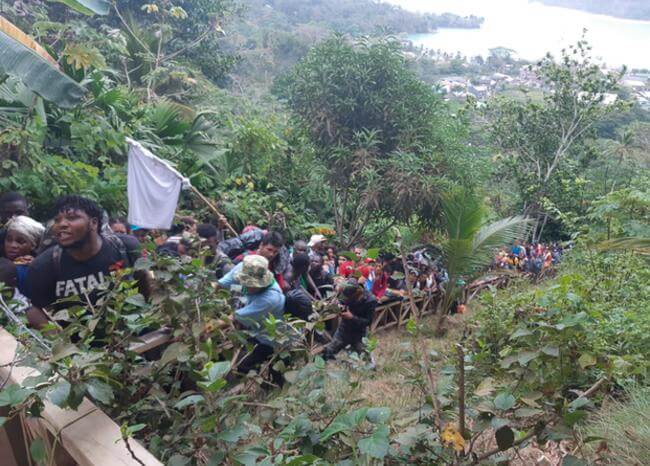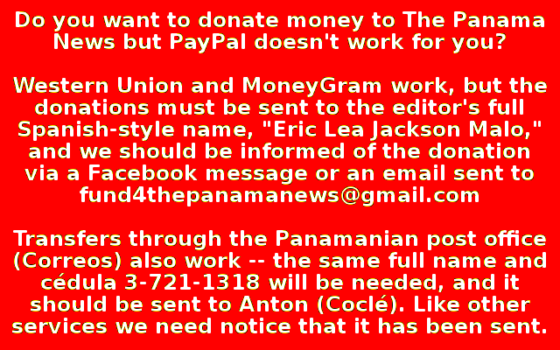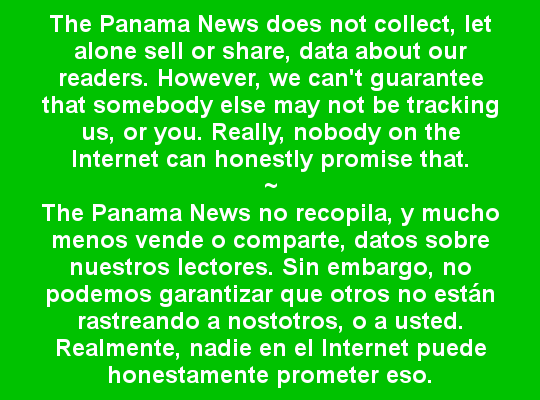Migrants, said to be Africans, trying to make their way into Panama from Colombia. Or so it is presented. The unattributed photo is from the local Colombian news website Noticias Uraba, which covers that remote corner of northwestern Colombia more than the national Colombian media do.
Hundreds of migrants, some sick, stuck in the bush at the border with Colombia
by Eric Jackson, from other sources
Local Colombian media report that on February 11 Panama’s SENAFRONT border police shut down crossings from Colombia in the northern part of the binational border. They report that at least 700 undocumented migrants, said to be mostly Africans but perhaps with Haitians or Cubans in the mix, had come into the town of Acandi via the waters of the Gulf of Uraba from the opposite shore in Turbo. They then set out by foot to Panama and by a few accounts some got over the border.
But the main group was met by Panamanian authorities, who discovered that at least half a dozen were ailing with malaria. Was it of one of the deadlier African strains? So it was imprecisely reported. From Panamanian officials we are hearing nothing.
Noticias Uraba says that the Panamanian border guards used tear gas to turn the migrants back, with only partial success. Meanwhile the mayor of Acandi, Lilia Córdoba, told that medium that the migrants were not welcome back into town because of the health risk posed by the several reported malaria cases. So at last word there are hundreds of people stranded in the bush along the border.
Both sides of the so-called Darien Gap between Panama and Colombia are pretty remote — rough, forested, roadless terrain and not well served by media and telecommunications services. It has historically provided many hiding places and obscure routes for smugglers, guerrillas and paramilitary groups. During Colombia’s long and only partially ended civil conflict the part around the Gulf of Uraba, opposite Puerto Obaldia and beyond that Guna Yala on the Panamanian side, was the turf of the AUC paramilitary that was in that area funded in part by the US-based Chiquita Brands. Since then that particular right-wing private army has gone through various changes and morphed into the Clan Usuga, a violent drug smuggling gang that operates in Panama now. Other criminals operating in the area now dedicate themselves to the smuggling of other cargoes — human beings, seeking to slip into Panama en route to the United States if they can make it.
Until last year Panama had a policy of letting undocumented migrants pass through the country so long as they did not stay more than 30 days here. However, Costa Rica and the United States in particular objected to that policy and the Varela administration agreed to take stronger steps to stop migration without visas.













